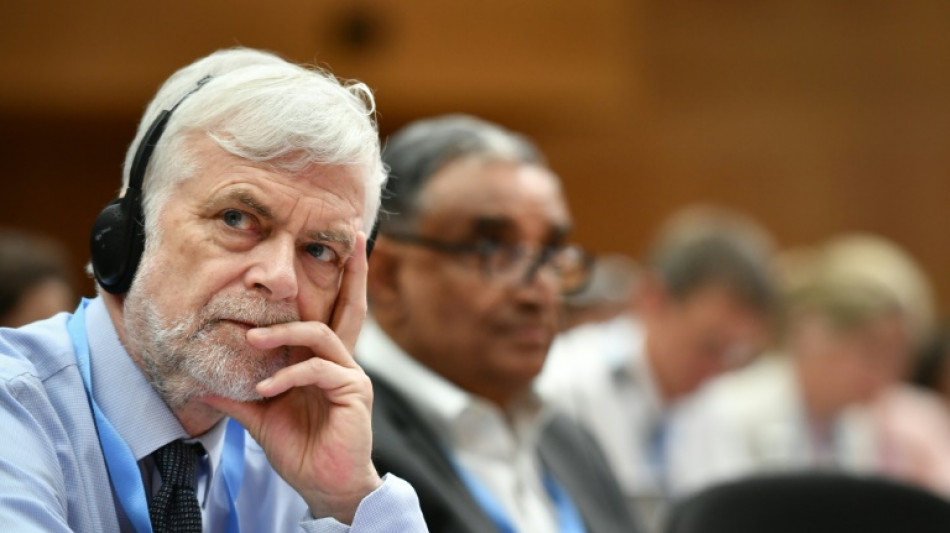
-
 Celtic sack manager Nancy after eight games
Celtic sack manager Nancy after eight games
-
Little-known Rosenior set for surprise chance at Chelsea
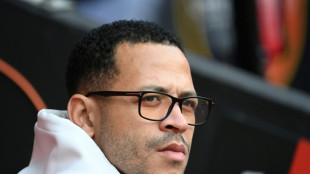
-
 Thousands attend annual minstrel parade in S.Africa's Cape Town
Thousands attend annual minstrel parade in S.Africa's Cape Town
-
EU hopes to sign Mercosur trade deal soon

-
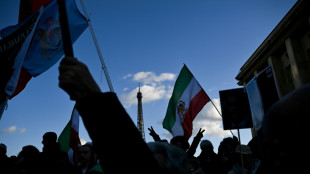 Iran says no leniency for 'rioters' as protests persist
Iran says no leniency for 'rioters' as protests persist
-
Strasbourg coach Rosenior meeting with Chelsea chiefs - reports

-
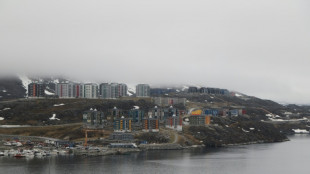 'That's enough': Greenland PM urges Trump to drop annex threats
'That's enough': Greenland PM urges Trump to drop annex threats
-
'Two-pope' Catholic Jubilee draws 33 million pilgrims to Rome
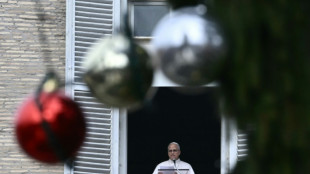
-
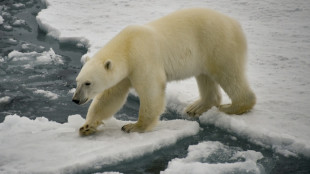 Three hurt in polar bear attack in remote Siberian village
Three hurt in polar bear attack in remote Siberian village
-
Virtual museum preserves Sudan's plundered heritage

-
 Dakar bike champion Sanders wins second stage to take lead
Dakar bike champion Sanders wins second stage to take lead
-
Maduro arrives for first US court appearance after capture

-
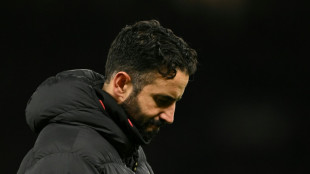 How Ruben Amorim's Man Utd reign turned sour
How Ruben Amorim's Man Utd reign turned sour
-
Xi urges South Korea's Lee to make 'right choices' in turbulent world
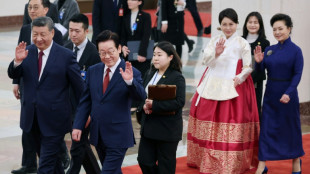
-
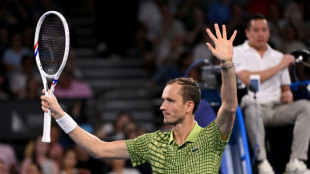 Medvedev renews call for early nights at Australian Open
Medvedev renews call for early nights at Australian Open
-
EU says 'seriously looking' into Musk's Grok AI over sexual deepfakes of minors

-
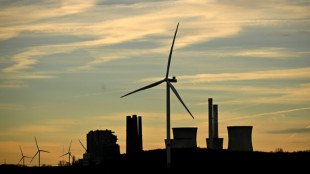 German renewable energy shift slowed in 2025
German renewable energy shift slowed in 2025
-
Medvedev in great touch as he starts 2026 with Brisbane cruise

-
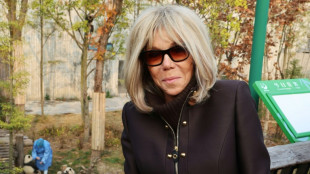 French court jails one in Brigitte Macron cyber-bullying trial
French court jails one in Brigitte Macron cyber-bullying trial
-
Oil prices ease as investors track Venezuela fallout

-
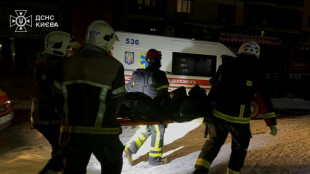 Patient killed in Russian strike on Kyiv clinic
Patient killed in Russian strike on Kyiv clinic
-
Myanmar pro-military party wins first phase of junta-run election: official results
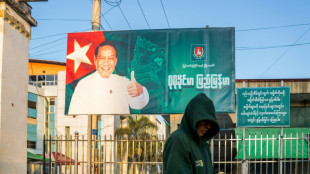
-
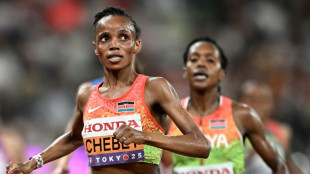 Double Olympic champion Chebet takes maternity break in 2026
Double Olympic champion Chebet takes maternity break in 2026
-
Amorim sacked by Man Utd after 14-month reign
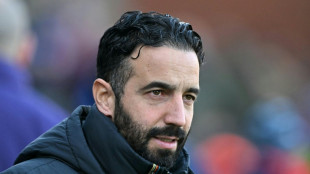
-
 Maduro due for first US court hearing after capture
Maduro due for first US court hearing after capture
-
Manchester United sack manager Ruben Amorim
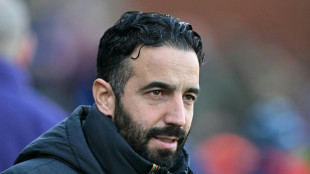
-
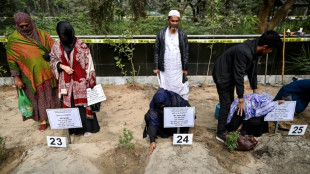 Bangladesh says at least 287 killed during Hasina-era abductions
Bangladesh says at least 287 killed during Hasina-era abductions
-
South Korea's Lee meets Xi with trade, Pyongyang on the agenda
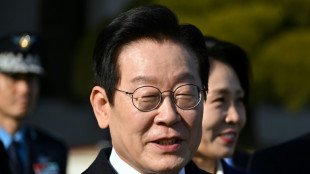
-
 Gauff shocked in United Cup, comeback kid Hurkacz stuns Zverev
Gauff shocked in United Cup, comeback kid Hurkacz stuns Zverev
-
Tech firms lead markets higher, oil swings after Maduro ouster

-
 Defending Brisbane champion Lehecka wins tough opener
Defending Brisbane champion Lehecka wins tough opener
-
Maduro's fall tests Venezuela's ruling 'club'
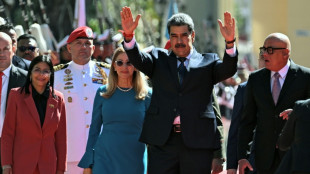
-
 'I can't walk anymore': Afghans freeze to death on route to Iran
'I can't walk anymore': Afghans freeze to death on route to Iran
-
UK starts ban on junk food ads on daytime TV and online

-
 Trump declares US 'in charge' of Venezuela and Maduro goes to court
Trump declares US 'in charge' of Venezuela and Maduro goes to court
-
Two killed in series of Russian attacks on Ukraine

-
 Kasatkina feels pressure to 'repay Australia' after Russia switch
Kasatkina feels pressure to 'repay Australia' after Russia switch
-
Suns stun NBA-best Thunder as East-leading Pistons top Cavs

-
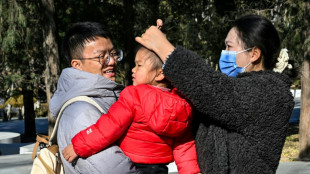 China's birth-rate push sputters as couples stay child-free
China's birth-rate push sputters as couples stay child-free
-
'Not about condoms': Chinese shrug off contraceptive tax

-
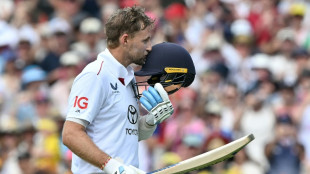 Root's majestic 160 powers England to 384 in final Ashes Test
Root's majestic 160 powers England to 384 in final Ashes Test
-
Chalamet boosts Oscar bid with Critics Choice Awards win

-
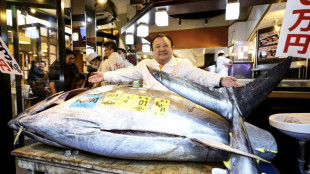 'Tuna King' pays record $3.2 mn for bluefin at Tokyo auction
'Tuna King' pays record $3.2 mn for bluefin at Tokyo auction
-
Tech firms lead Asian markets higher, oil swings after Maduro ouster

-
 Cricket Australia boss hits out at 'archaic' bad light rules
Cricket Australia boss hits out at 'archaic' bad light rules
-
Trump insists 'we need Greenland'
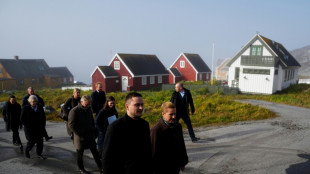
-
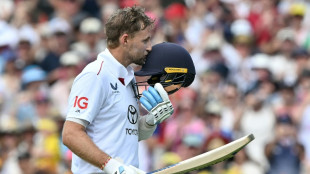 Century-maker Root steers England to 336-6 in final Ashes Test
Century-maker Root steers England to 336-6 in final Ashes Test
-
'Free our president', Maduro supporters demand at rally
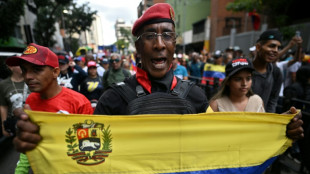
-
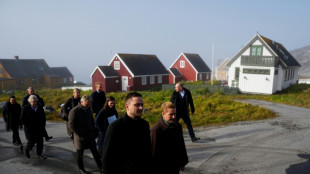 Danish PM calls on US to stop 'threatening' Greenland
Danish PM calls on US to stop 'threatening' Greenland
-
North Korea tests hypersonic missiles, says nuclear forces ready for war
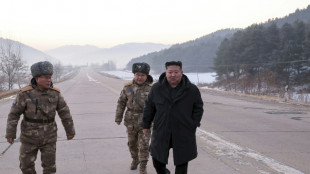
| CMSC | 0.09% | 22.91 | $ | |
| BCC | 2.88% | 76.315 | $ | |
| CMSD | 0.08% | 23.61 | $ | |
| SCS | 0.12% | 16.14 | $ | |
| RBGPF | 0% | 80.21 | $ | |
| RIO | 1.34% | 82.532 | $ | |
| BCE | -0.28% | 23.595 | $ | |
| NGG | -0.94% | 77.97 | $ | |
| JRI | -0.22% | 13.59 | $ | |
| RYCEF | 4.08% | 16.68 | $ | |
| VOD | 0.85% | 13.455 | $ | |
| GSK | -0.82% | 49.225 | $ | |
| RELX | 5.07% | 41.925 | $ | |
| BTI | -2.76% | 55.03 | $ | |
| AZN | -1.31% | 90.39 | $ | |
| BP | -1.07% | 35.45 | $ |

Humanity 'has agency over future': new head of UN climate panel
British professor Jim Skea told AFP on Thursday he will bring "a judicious blend of realism and optimism" to his leadership of the UN's climate expert panel, including a firm belief that humanity is not powerless to confront global warming.
Skea takes charge of the Intergovernmental Panel on Climate Change (IPCC) in a crucial decade which will determine the extent of warming and its impact on the planet for decades or even centuries to come.
The 195-nation organisation informs global policymakers on the latest science on climate change, and Skea will oversee hundreds of experts and the defining reports they produce on the best course of action.
Skea, a Professor of Sustainable Energy at Imperial College London, said extreme temperatures being felt across the globe this month were "a salutary lesson" for the task ahead as he assumes his new role.
But it was critical to offer "positive" ways for humanity to address these challenges, he said, and not just "messages of gloom that can induce a sense of existential dread about the future of the planet".
"We need to make the point that human beings do have choices they can make, and agency over their own future," Skea told AFP in Nairobi, where the elections for other IPCC leadership positions are also underway.
He said more than ever, governments wanted advice on steps they could take in the near term and there would be a "twin emphasis" on climate adaptation and mitigation under his stewardship.
Skea, 69, has decades of experience building consensus around climate change and was not "naive about the difficulty of getting the science messages across."
"I think it will be a judicious blend of realism and optimism... I am genetically optimistic," he said of his approach to the job.
- Daunting task -
The task ahead is enormous.
Under the 2015 Paris treaty, nations promised to collectively cap the rise in the planet's average temperature at "well below" 2C, and at 1.5C if possible.
To get to that more ambitious target, the IPCC says emissions need to drop 43 percent by 2030 -- and 84 percent by mid-century -- to stay within the threshold.
Yet they continue to rise, and there are concerns the next IPCC reports -- due in five to seven years -- come too near the end of this critical decade to rally a sufficient global response.
Skea said rushing out reports would risk "that gold standard credibility that has been so influential for the IPCC in the past".
Skea had a leading role in publishing a landmark 2018 IPCC report that concluded only a 1.5C cap on warming could ensure a climate-safe world that did not risk ecosystem collapse.
Experts have said it might fall on Skea to finally say the world cannot limit temperature rises to 1.5C in time -- but the new chief said this was premature.
"If it appears that 1.5 cannot be reached on a more permanent basis, we will have to say so," Skea said.
"But we are not at that point yet, and we do not have the evidence for it".
He said he would strongly resist pressure to turn out more so-called special reports like the 2018 study, saying they dragged on the IPCC's core work and resources.
"I'll say something very strongly -- over my dead body will we see lots and lots of special reports," he said.
He succeeds South Korean economist Hoesung Lee, who led the IPCC for eight years, and was elected over four other candidates including two hoping to be the first woman chair of the organisation.
Skea said the IPCC had "big issues" around gender and diversity, and said a priority of his tenure would be increasing the number of women in their ranks.
C.Garcia--AMWN
